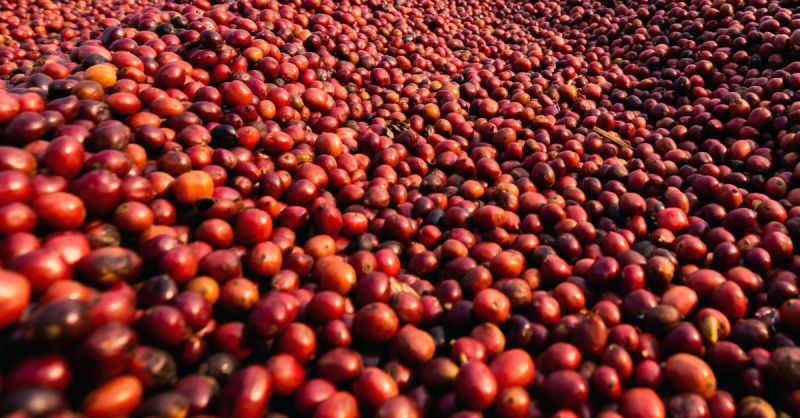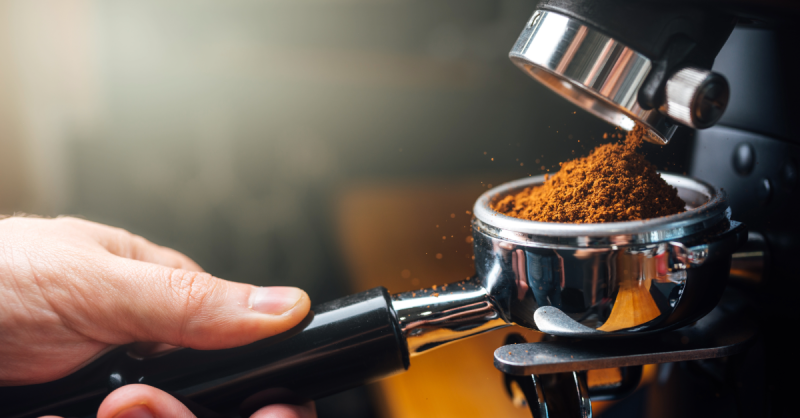Latte, frappé, cappuccino, iced or do you prefer something a little more (heart) warming? We all enjoy our coffee in our own way. What does the future of coffee look like? We sat down with Petty De Sloovere, secretary-general of Koffiecafé, the Royal Belgian Coffee Roasters Association: an interview about the industry's commitment to sustainability and trends.

Petty has her hands clasped around a cup of cappuccino: that’s how she prefers having her coffee in the afternoon. She is leaving for Kenia tomorrow to visit a number of coffee plantations. Before she sets off however, we managed to catch up with her for a friendly chat over a cup of coffee about… you guessed it, coffee. What does the future hold for our mental and bodily pick-me-up?
Hello Petty. Do Belgians love their coffee?
“Oh yes! In fact, coffee is Belgians’ favourite hot drink. We love a cup of freshly ground coffee, whether for breakfast or as a digestif after lunch of dinner. Belgians are passionate coffee drinkers, sipping 5.7 kg per year on average. This puts us in the middle tier of coffee consumption per capita worldwide. In countries such as Sweden and Finland, consumption is much higher, as they drink their coffee from bigger mugs and often from thermos flasks.

Remarkably, and contrary to popular belief, Italians drink slightly less coffee than Belgians. The reason being that they mainly have their espressos out of doors. In Italy it’s tradition to step inside a coffee bar for a quick coffee break, where it costs around 1 euro for a shot of espresso, which more often than not comes with dolci, a little something sweet. The low price is what makes a shot of espresso in a coffee bar a daily habit for a lot of Italians.”

How sustainable is our cup of coffee?
“Our coffee producers continue to work hard to make our coffee more sustainable. Which explains why the industry has come up with quite a few sustainable innovations: examples include recyclable and refillable capsules, made from maize or wood fibre. In addition, things like used coffee grounds are being recovered in increasingly greater volumes to make products such as soap, bicycles and wooden floors from. Start-ups collect coffee grounds from large retail outlets such as IKEA, using them to create new products.
Coffee beans are traditionally roasted using natural gas or electrical power, so developments are under way to roast coffee using solar energy. Even though solar energy is not always consistently available, this is set to become an important eco-friendly option in times ahead.”

Which trends are you seeing?
“During the corona pandemic, home consumption of coffee went up substantially as hospitality venues were closed. As government measures relaxed, coffee bars were allowed to open up for take-away at some point, but having your coffee on the premises was not permitted. By now, out of doors consumption is back to its pre-2019 level, and the number of coffee bars is continuing to rise, especially in urban areas.
Offering a wide variety of coffee specialities and an in-depth understanding of coffee, these coffee bars are seen to attract new coffee lovers. It is this varied offering that finds favour among Belgians: depending on the time and location, we tend to prefer a different kind of coffee.
An interesting trend we are witnessing in home consumption is the shift away from ground coffee, pads and capsules towards coffee beans that are used in fully automatic coffee machines. Consumers want to experience their coffee at home in the same way they do in coffee bars. In other words, people are increasingly grounding beans at home. Having said that, single cup solutions such as capsules and pads remain highly popular.”
Just how popular is our Belgian coffee, at home and abroad?
Belgians remain true Burgundians who appreciate a nice cup of coffee and who can’t do without their daily cup of comfort. In 2023, we exported some 67,629 tonnes of coffee, while we imported no less than 157,201 tonnes. In terms of recognising coffee as a Belgian speciality, there is definitely further potential for growth in the years ahead. Along with the promotional ‘food.be’ brand, we are continuing to put Belgian coffee on the map, both at home and abroad: small country, great coffee!

